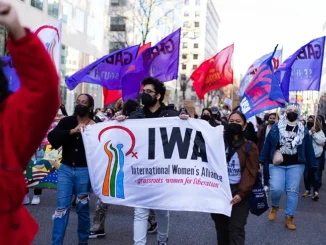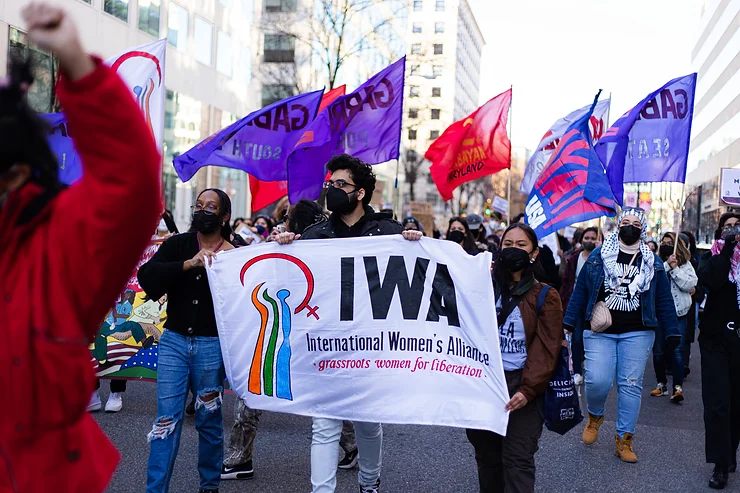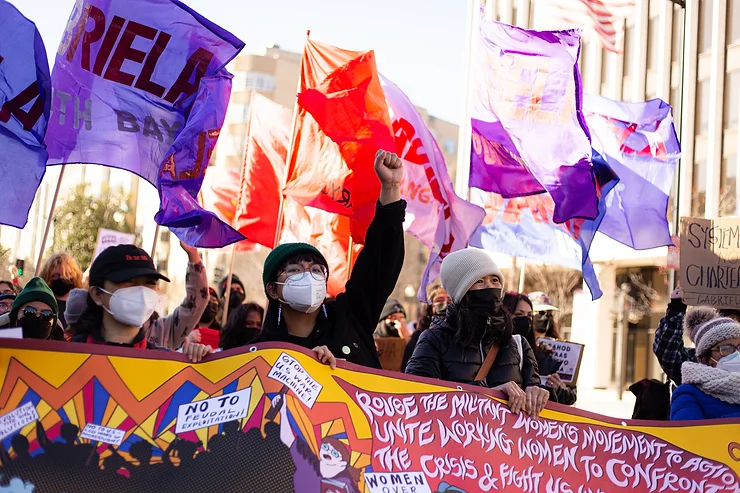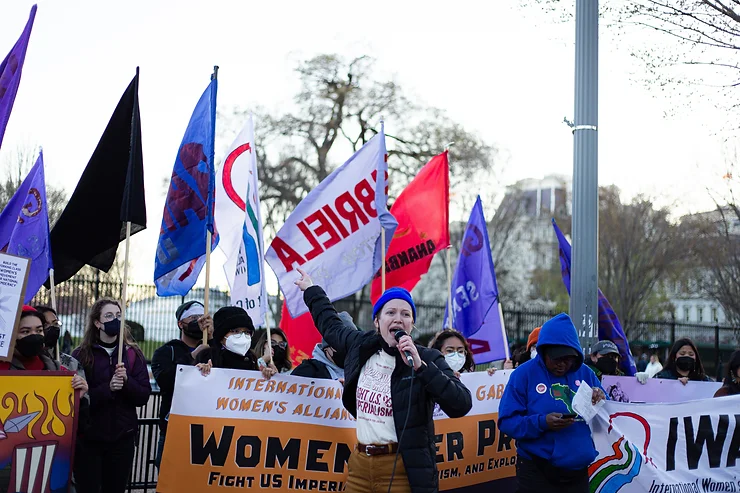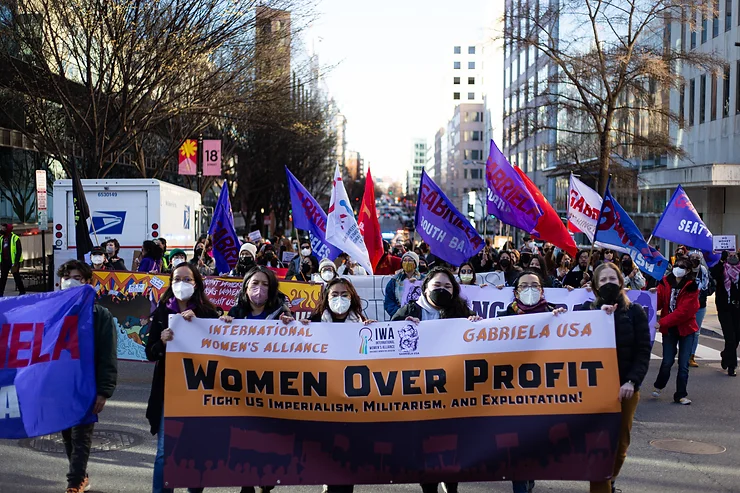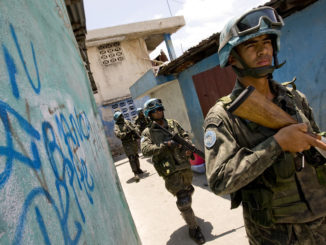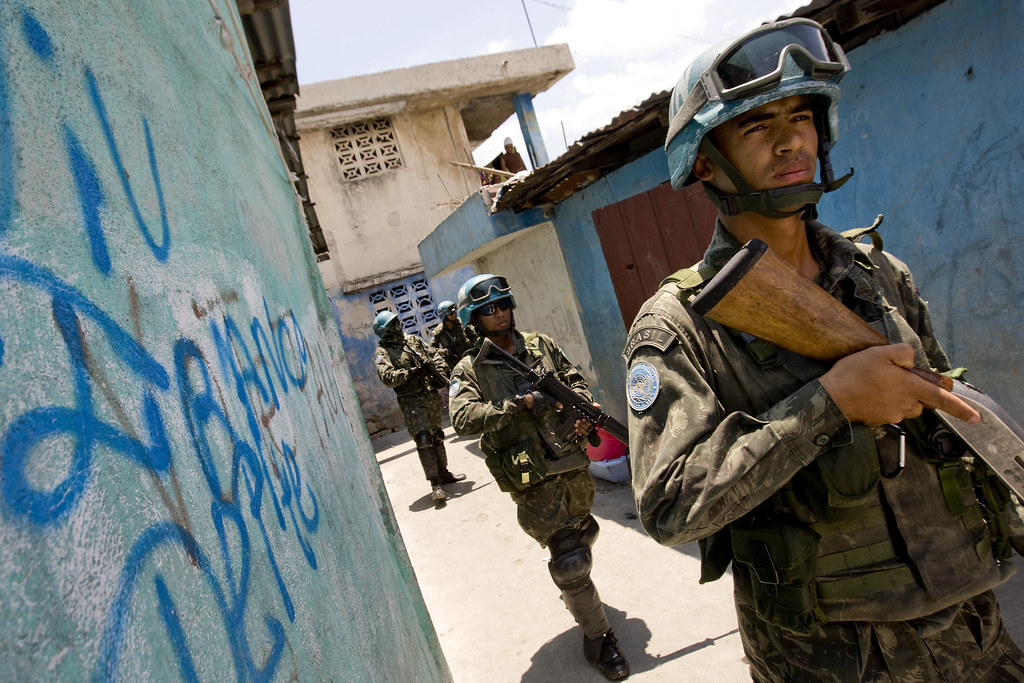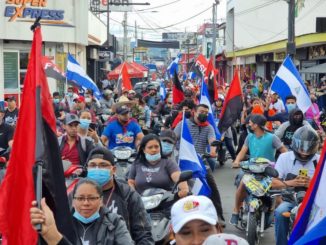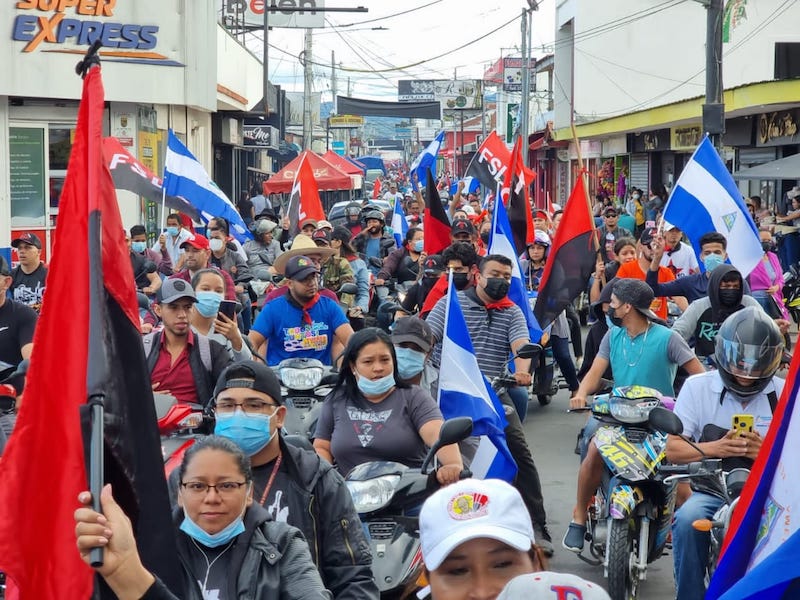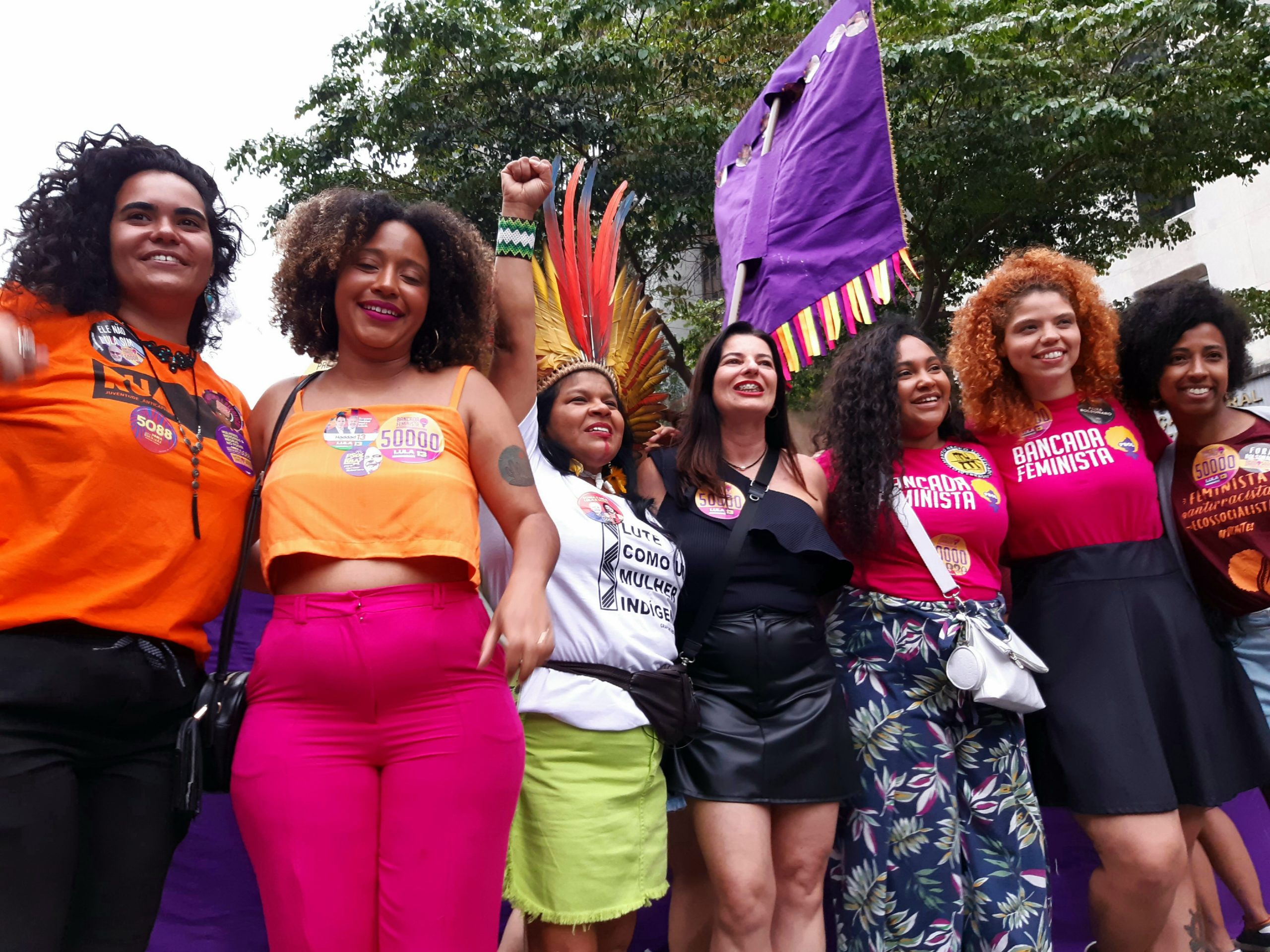
SÃO PAOLO, Brazil—Brazilians head to the polls October 2 to vote in the first round of what is considered the most consequential presidential election since the end of almost 20 years of U.S.-backed military dictatorships.
“The fundamental choice,” stated an open letter by several Latin American figures, including ousted Ecuadorian President Rafael Correa, “isn’t between [the two presidential hopefuls, President] Jair Bolsonaro and Luiz Inácio ‘Lula’ da Silva, but between fascism and democracy.”
With Brazil being the fifth-largest country by area, along with having the seventh-largest population and economy, the outcome of this election could not only significantly alter the lives of Brazilians, but impact regional politics that have recently swung left as well as the health of the planet.
And it’s not just the outcome that matters.
“Bolsonaro [trailing in the polls] has questioned democracy and camouflaged himself as the great victim of the lack of democracy,” said Danny Shaw, Latin American and Caribbean Studies Professor at the City University of New York, explained to Toward Freedom. “He has preemptively attacked the integrity of the entire voting process.”
Bolsonaro has repeatedly said he would only accept election results if they were “clean,” but that he doubted they would be. Through livestreams, he has spoken to followers about resisting a loss and helping stage a coup. A poll showed high support for a coup among members of the Brazilian Navy and the Air Force, while enthusiasm remained low in the larger army. “But, it doesn’t seem like he has institutional support from within the military to make these things into a reality,” according to Shaw.
“It’s kind of unimaginable,” said Socialist and Liberty Party (PSOL) São Paulo state deputy candidate Ediane Maria, “to see Bolsonaro passing the [presidential] sash to Lula.”
This reporter reached out to Lula’s Workers’ Party and Bolsonaro’s Liberal Party for comment, but they did not reply by publication time.
Brazil’s recent history includes a 2016 procedural coup against Rousseff in favor of her business-friendly vice president, Michel Temer. Lula himself was incarcerated in 2018, which a court has since found to have been unlawful, as well as a separate ruling that banned him from competing in the 2018 election that Bolsonaro won.
In this period, Brazil ranked as one of the 10 largest democratic backslides, according to the Varieties of Democracy (V-Dem) Institute based at the University of Gothenburg in Sweden.

Testing Democracy
If the necessary conditions for fascism are nativism, belief in a social hierarchy, subordination of individual interests for the perceived good of the nation, and anti-democratism, Shaw said Bolsonaro meets the criteria of a fascist. Bolsonaro’s government has the “underpinnings and trappings of fascist rule,” Shaw explained. “The unofficial religion of Bolsonarismo is anti-socialism and anti-communism.”
Bolsonaro pressured the electoral commission to allow the military to also count votes, and that has succeeded, according to newspaper Folha de São Paulo.
The PSOL and Folha de São Paulo assert Bolsonaro created a parallel $1 billion budget to buy support in Congress to prevent an impeachment and to fund his campaign.
Bolsonaro has glorified Brazil’s brutal military dictatorships and has conveyed himself to be like Benito Mussolini, including with black-clad motorcycle rallies.
He demanded leftists be “eradicated from public life” hours after a Bolsonaro-supporting farmer murdered his Lula-favoring colleague with an ax. He also called for Workers’ Party supporters to be “machine-gunned.”
This month, an assailant reportedly announced “I am Bolsonaro” while pointing a gun at Maria and her fellow PSOL candidate for the Brazilian Chamber of Deputies, Guilherme Boulos.
“It was an attack on our democracy, on our freedom of expression,” Maria told Toward Freedom. “You see horror scenes of people who are killed at work, or in the streets just for defending what they believe in. This year, people sense the violence, the fights. We have a president who says, ‘shoot them in the head,’ that encourages and defends mass gun ownership. Thank God it’s coming to an end… this moment of horror that we lived through, this process of violence against our bodies.”
Filipe Campante, professor at Johns Hopkins University, raised it is unclear whose responsibility it would be to evict Bolsonaro from the presidential palace if he opted to stay. No one is certain how such a scenario would play out, and in the disorder, the perceived legitimacy of the handover of power could be damaged. Even if Bolsonaro does give way to Lula, Campante and others have raised important questions about the strength and preparedness of Brazil’s democratic institutions. All key parties have met regularly with the military, which has played its cards close to its chest. As Campante said, this culture of keeping the military close is a sign of a “democracy that’s not healthy.”
A poll last week found 40 percent of Brazilians expect a high chance of violence on Election Day, and 9 percent might avoid voting (at risk of penalties) because of fear.
“If Brazilian [progressives] can [win] given the political climate they’re facing,” explained U.S.-based human-rights and labor-rights lawyer Dan Kovalik to Toward Freedom, “then everyone should be able to do it.” He added it would be an inspiring victory for movements as far away as Europe.
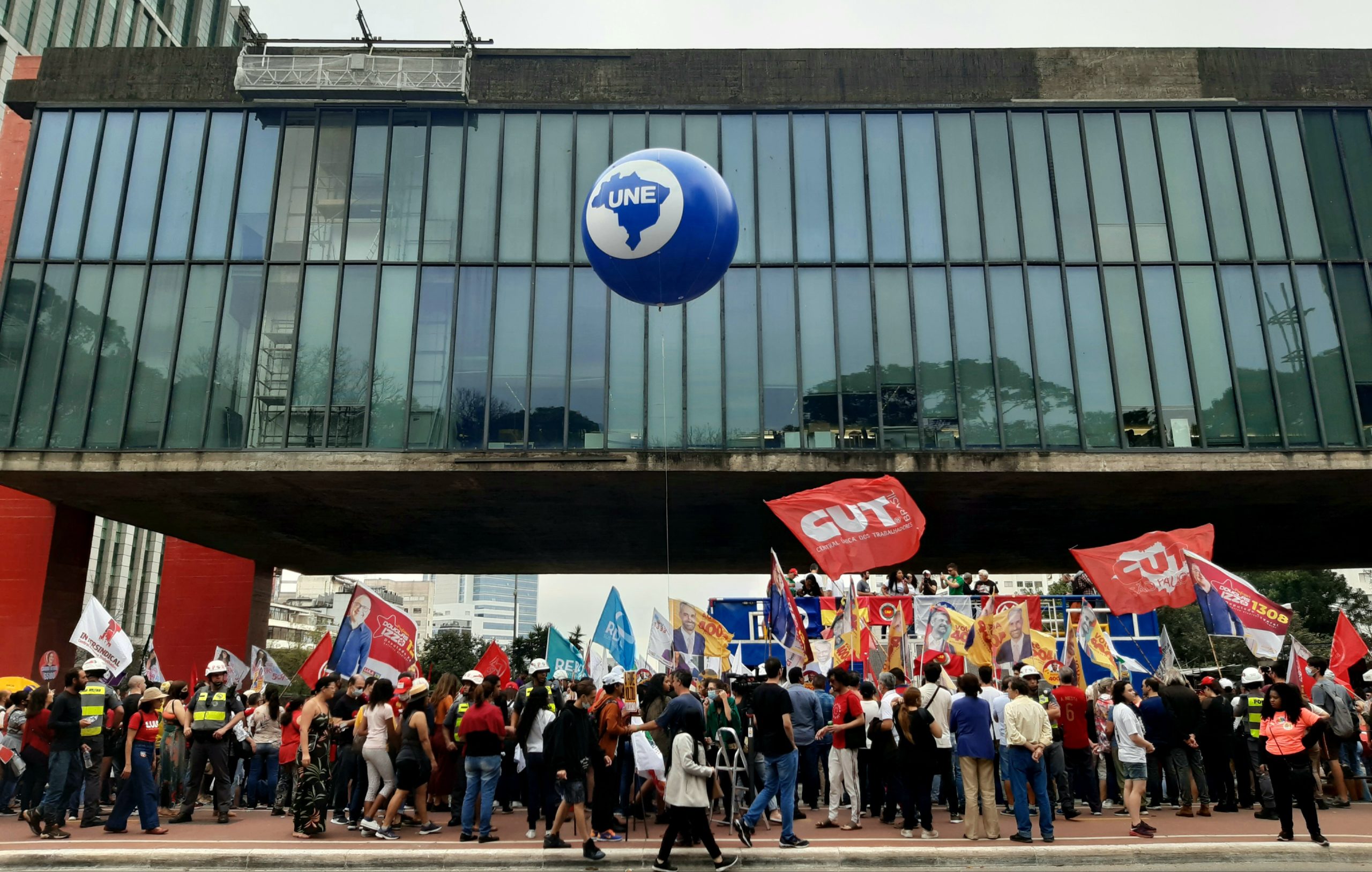
The Global Implications of a Lula Victory
So far, the Brazilian left has been relatively united in helping Lula win. Maria’s left-wing PSOL, for instance, hasn’t presented a presidential candidate. The Latin American leaders’ letter mentioned earlier was addressed to Ciro Gomes, a centrist candidate polling around 7 percent. The letter asked him to pull out to avoid a Bolsonaro win.
“The Pink Tide seems to be back,” Kovalik said about the recent wave of progressive victories across Latin America. “But I think Brazil needs to be a part of that because other countries—Venezuela, Cuba, Nicaragua—are under great attack, especially economically, by the United States. To have Brazil’s support again would be huge, both their political and economic support. It’d definitely leaven the movement.”
A red Brazil is likely to not rely on special relationships with strongmen, as Bolsonaro did with former Italian Deputy Prime Minister Matteo Salvini, former U.S. President Donald Trump and former Israeli Prime Minister Benjamin Netanyahu. A Lula victory, added Kovalik, “would help bring about the multipolar world that we need.”
However, as foreign policy did not form a large part of the electoral campaign, and the global dynamics are different compared to when Lula was last in power in 2010, it is difficult to predict the exact foreign implications of a Lula victory. Lula invited Palestine to the 2010 BRICS summit in Brasilia, Brazil’s capital. (BRICS is an acronym that stands for an alliance between the emerging economies of Brazil, Russia, India, China and South Africa.) But he also sent Brazilian troops for UN peacekeeping in Haiti, where they abused their power and stayed for years after being asked to leave.
“I think we can expect a more anti-imperialist Lula,” Shaw posited. “Even a neutral Lula would neutralize imperialism” by building a stronger relationship with Caracas and other anti-imperialist governments.
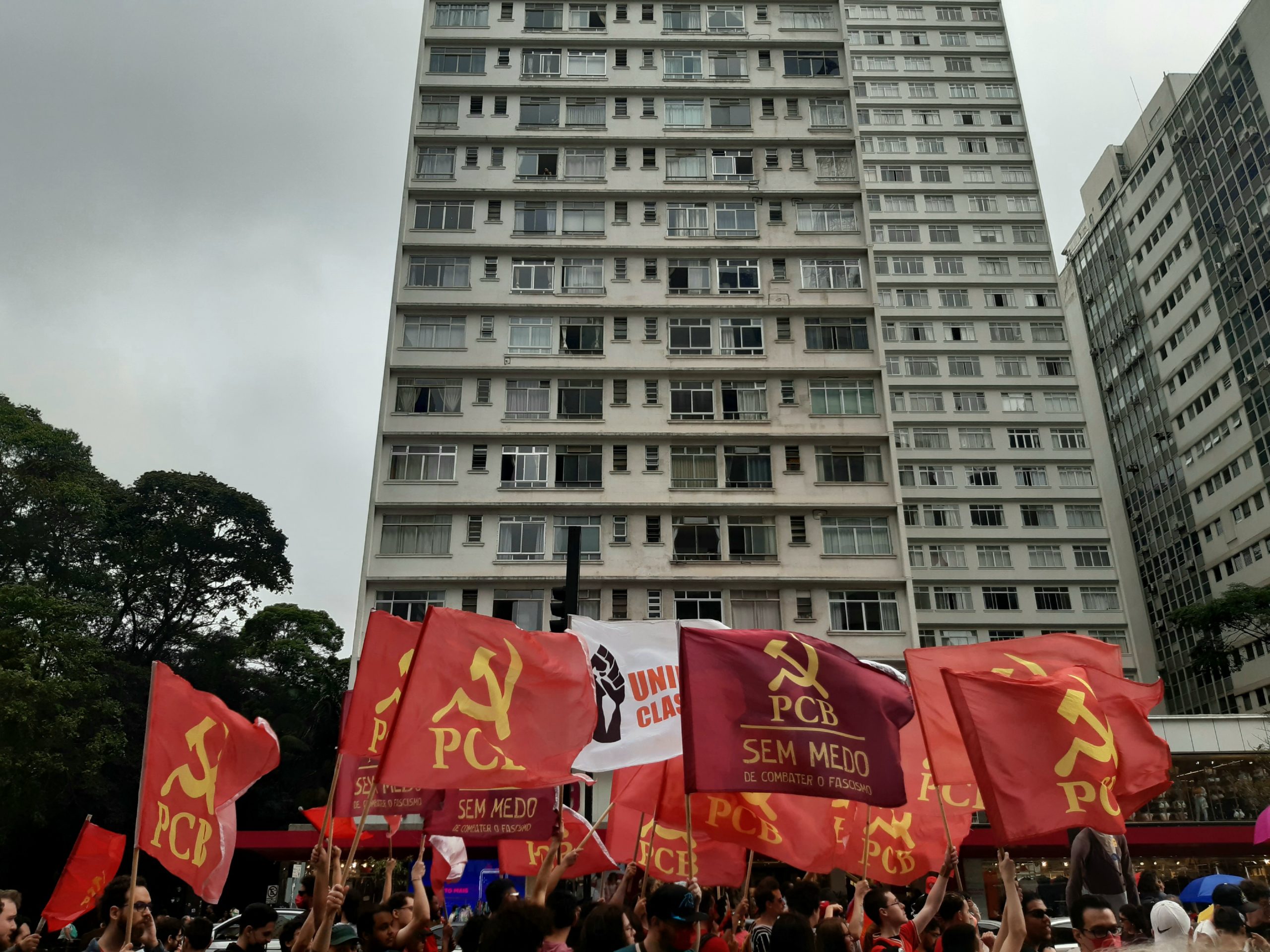
Challenges a Third Lula Term Would Face
However, a commodities boom had buoyed the original Pink Tide that had started in the 1990s and ended in the 2000s. Moreover, Bolsonaro, as Kovalik has said, has “dismantled social programs.” This raises questions about the surmountability of the challenges faced by a new government.
Lula’s last government “broke the cycles,” as Maria put it, “to break barriers, to put the bricklayer’s son and the housecleaner’s daughter into university.”
But Bruno Clima, an architect in the housing-justice group Central Homeless Movement (MSTC) in São Paulo, is worried about current challenges. “Even with the victory of a capable president, lifting the country up will not be easy or quick.”
With limited resources and enormous crises, Lula might struggle to meet such expectations in one term. Some are worried enough Brazilians would lose patience with him after that, and this turn to progressivism could be a bump in a larger turn towards neoliberalism.
For now, Maria sees the upcoming election as a battle between democracy and fascism.
“Our country is hoping that love can win over hate and that we are going to elect Lula in the first round, and elect him well,” Maria said. “We will fight for democracy in Brazil, which has never in my lifetime been as threatened as it is now.”
Richard Matoušek is a journalist who covers sociopolitical issues in southern Europe and Latin America. He can be followed on Twitter at @RichMatousek and on Instagram at @richmatico.

